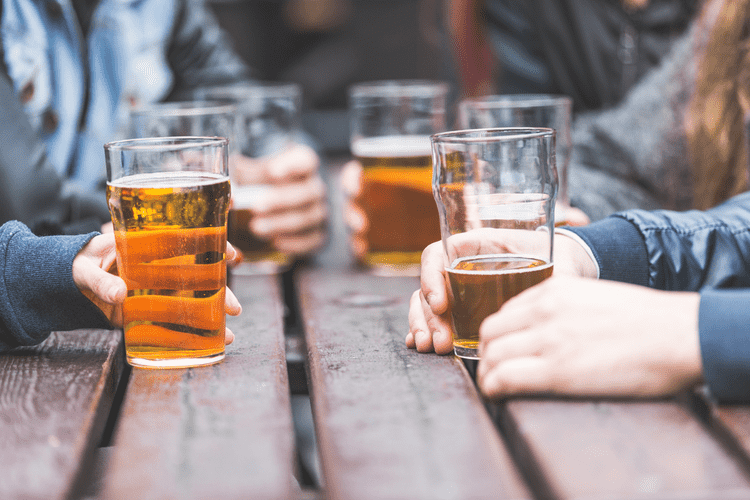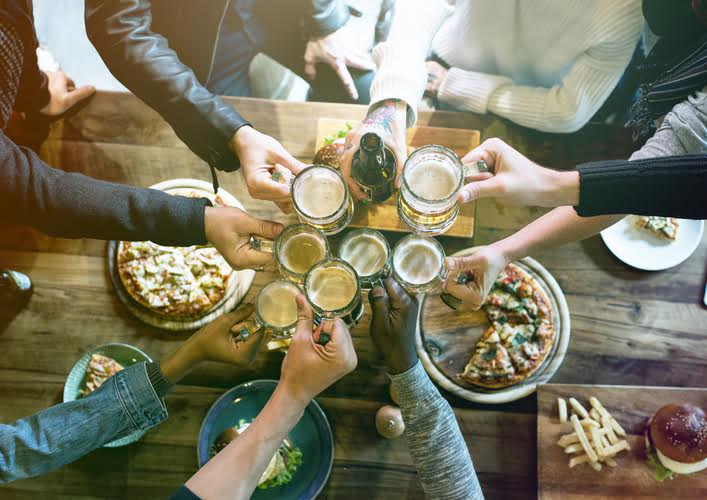11 Jun Understanding the Dangers of Alcohol Overdose National Institute on Alcohol Abuse and Alcoholism NIAAA
Binge drinkers often have a harder time with tasks that involve impulse control, leading to reckless or dangerous behavior. Whatever your personality, though, there are steps you can take to modify your habits and take back control of your drinking. Avoiding alcohol when you tend to binge is challenging because heavy alcohol use is accepted in today’s society. However, there are resources available for those who need support.
Risks of Binge Drinking
Alcohol use disorder can include periods of being drunk (alcohol intoxication) and symptoms of withdrawal. By clicking “Submit,” you certify that you have provided your legal name and phone number, agree to the terms and conditions and privacy policy, and authorise Paid Advertiser to contact you. You consent to receive SMS notifications and promotions from Paid Advertiser. AddictionResource aims to present the most accurate, trustworthy, and up-to-date medical content to our readers. Our team does their best for our readers to help them stay informed about vital healthcare decisions. Addiction Resource does not offer medical diagnosis, treatment, or https://chidomerendubuisi.com/detection-timeline-how-long-does-alcohol-stay-in/ advice.
Fast facts about binge drinking
Kids are experiencing their life away from their parents for the first time. They’ll want to experience life without their parents’ restrictions. Alcohol is also often found in the blood of people who harm themselves or attempt suicide.

Understanding the Dangers of Alcohol Overdose
Some research even shows that the habit is increasing among older adults. A single episode of binge drinking can cause these immediate effects, and likely a hangover the next morning. Repeated binge drinking can have severe long-term effects on both physical and mental health. Binge drinking can lead to alcohol dependence and alcohol use disorder for certain people.
- Because of this initial effect, people often use alcohol to cope with social anxiety.
- Department of Agriculture, the dietary guidelines provide recommendations on what the average American should eat and drink to promote health and help prevent chronic disease.
- Increased frequency of binge drinking can often result in increased frequency in disruption to employment and school responsibilities.
- Consider talking to loved ones or a healthcare professional about your drinking problem.
- Initially, focused on social and cultural factors, research shifted after 2016 to mechanistic and animal models, shaping future research directions and strategies.
- Notably, there’s a behavior that’s even more extreme than binge drinking, known as high-intensity drinking.
- Social influences, such as peer pressure and the desire to fit in or be accepted within a social group, can play a significant role in binge drinking.
Perhaps you’re worried that they’ll think less of you if you don’t drink more. Keep in mind that people who really care about you will accept your decision. Consider avoiding people who pressure you as well as people who tend to binge drink. Many alcoholic beverages have lots of calories, and you might not notice that because they’re so easy to consume. For example, if a 12-ounce beer has about 150 calories, and you drink five, you’ve consumed an additional 750 calories which can quickly add inches to your waistline. It’s not uncommon for young adults to encourage one another to drink in excess, mix their drinks, or add rounds of shots.
Health Consequences of Binge Drinking
For men, binge drinking is consuming 25 or more ounces of long-term effects of binge drinking wine in two hours—just around a bottle. Binge drinking results in an elevated blood alcohol concentration (BAC). One study from 2017 estimated that someone who drank three times the binge-drinking threshold (12 to 15 drinks or more) would reach blood alcohol concentrations higher than 0.3 percent.
How Does Binge Drinking Affect Adolescents?
The findings in this report are subject to at heroin addiction least three limitations. First, the BRFSS response rate indicates the potential for selection bias to the extent that survey respondents differ from nonrespondents. Second, responses are self-reported and subject to recall, social desirability, and nonresponse biases, which could vary across states and groups, and lead to underestimates of binge drinking (8).

Find Support For Alcohol Abuse
You might also worry about whether alcohol is causing permanent damage to your brain or heart health. If your excessive alcohol use is a recurring issue, you might admonish yourself for your poor self-control or even develop a sense of self-loathing. If you have trouble stopping drinking once you start, these tips can help you build a healthier relationship with alcohol.
- Bibliometric analysis of binge drinking research over the last four decades has revealed significant trends and shifts in focus, as well as important research gaps and future opportunities.
- For example, if a 12-ounce beer has about 150 calories, and you drink five, you’ve consumed an additional 750 calories which can quickly add inches to your waistline.
- Smaller people, for instance, could reach the threshold with fewer drinks.
- Alcohol use can strain relationships, with one of the most common consequences of binge drinking being relationship conflict, as increased intoxication reduces judgment capabilities.
- Reaching a BAC of 0.08% or higher leads to significant impairments in judgment, impulse control, and motor coordination, all of which increase the likelihood of injuries and other harms.
What Happens to Your Body When You Binge Drink
If no one’s pressuring you, but you still feel a desire to fit in, have a non-alcoholic beverage. Simply having a drink to sip on might make you feel more at ease. This strategy can also come in handy if you’re with a group of friends who want to play drinking games. In some cases, the people around you might continue to pressure you to drink.




Sorry, the comment form is closed at this time.